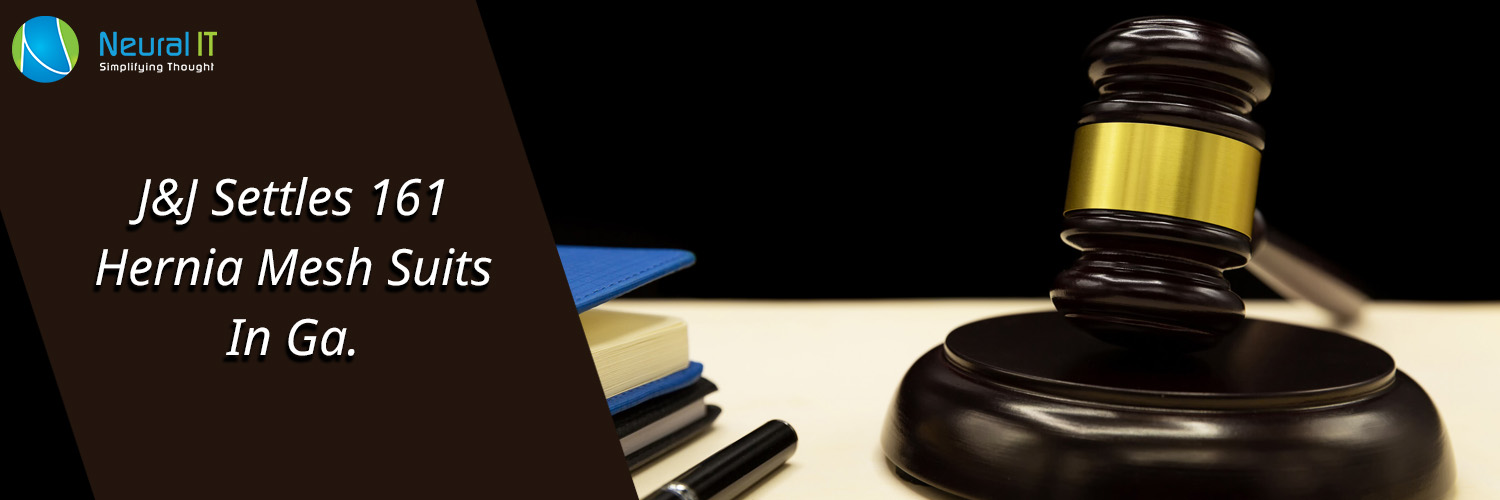Weekly Mass Torts Bulletin 2023-June-5
J&J Settles 161 Hernia Mesh Suits In Ga.

According to a group of more than 160 plaintiffs, their hernia mesh case against Johnson & Johnson and its Ethicon subsidiary has been settled.
The plaintiffs claim that the business supplied a faulty polypropylene product that frequently failed, leading to injuries and the need for revision surgery. The plaintiffs have marked some of the first of what is anticipated to be several thousand hernia mesh settlements achieved.
The lawsuits are related to an Ethicon Physiomesh recall from 2016 involving a multi-layered, flexible composite hernia mesh product that was taken off the market only six years after it was first introduced due to a concerning number of complaints regarding high failure rates and uncomfortable user complications.
More than 4,000 Ethicon Physiomesh lawsuits against Johnson & Johnson have been filed in federal courts, each claiming that the manufacturer sold an unreasonable dangerous and defective product that resulted in severe abdominal pain, infection, hernia recurrence, adhesions, perforations, erosion, and other injuries linked to the hernia mesh's failure. A worldwide settlement deal has apparently subsequently addressed the majority of the claims, although the money hasn't yet been dispersed as of yet.
As part of an MDL, or multidistrict litigation, the federal cases were consolidated because they included identical issues of fact and law for pretrial hearings before the U.S. District Judge managing the claims in the Northern District of Georgia.
A joint motion (PDF) to dismiss 161 cases with prejudice was submitted on May 24, signaling that the parties had reached an agreement on a hernia mesh settlement to settle the claims. The specifics of each settlement award, however, were not made public.
Tens of thousands of other product liability lawsuits have been brought against C.R. Bard, Covidien, Atrium Medical, and other producers of comparable polypropylene mesh products used recently that have also been connected to high failure rates, in addition to the lawsuit over the recalled Ethicon Physiomesh.
Approximately 18,000 Bard hernia mesh lawsuits are currently pending in a different MDL that is centralized before a U.S. District Judge in the Southern District of Ohio. During these early "bellwether" trials, which were held to help gauge how juries may react to specific evidence and testimony that is likely to be repeated throughout the claims, have been heard. Bard hasn't finalized a global hernia mesh settlement to end that case, though, because of the uneven outcomes.
A Bard hernia mesh settlement master was appointed in August 2022 to work with the parties to see if an agreement could be reached to settle numerous claims. At least two further Bard lawsuits are now scheduled for trial in the MDL. Thousands of individual lawsuits, however, may be sent back to U.S. District Courts throughout the country for separate trial dates in the upcoming years if agreements are not made.
Opvee Nasal Spray Approved By FDA To Reverse Opioid Overdose

Opvee, the first nalmefene hydrochloride nasal spray, was given the go-ahead by the U.S. Food and Drug Administration for the emergency treatment of known or suspected opioid overdose in adults and pediatric patients 12 years of age and older.
The nalmefene hydrochloride nasal spray has now received FDA clearance for the first time. With more than 103,000 documented death overdoses occurring in the 12 months ending in November 2022, drug overdose continues to be a serious public health concern in the United States, with synthetic opioids like illegal fentanyl being the main cause.
Acute opioid overdose is treated with nalmefene, an opioid receptor antagonist. Nalmefene can counteract the consequences of an opioid overdose, including respiratory depression, drowsiness, and low blood pressure (also known as hypotension), if it is given rapidly. The recently authorized drug is designed for use in healthcare and community settings and delivers 2.7 milligrams (mg) of nalmefene into the nasal cavity. It is accessible by prescription.
Studies on Opvee's safety and pharmacokinetics, as well as research in which opioids were used recreationally by participants, were used to support the drug's approval. Nasal discomfort, headaches, nausea, dizziness, hot flashes, vomiting, anxiety, exhaustion, throat irritation, nasal congestion, decreased appetite, skin redness (erythema), and excessive sweating (hyperhidrosis) are among the most frequent side events.
The following signs and symptoms of opioid withdrawal may appear in individuals who are using nalmefene hydrochloride if they are opioid-dependent: Body pains, diarrhea, tachycardia (rapid heartbeat), fever, sneezing, runny nose, goosebumps (piloerection), perspiration, yawning, nausea or vomiting, anxiety, restlessness, or irritability, shaking or trembling, stomach cramps, weakness, and elevated blood pressure are some of the symptoms that may be experienced.
This application was given priority evaluation status by the FDA, which speeds up the development and evaluation of medicines with the potential to significantly improve the safety or efficacy of their use in the diagnosis, treatment, or prevention of critical conditions.
Opiant Pharmaceuticals Inc. received permission from the FDA to market Opvee. The FDA's Overdose Prevention Framework outlines the organization's goals for taking effective, innovative steps to prevent drug overdoses and lower the number of fatalities. The framework has four aims, one of which is promoting harm reduction by working to make overdose reversal products more widely available and accessible.

